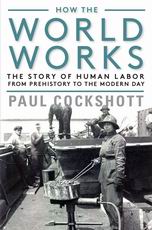
| Home News Releases | Calendar Contact |
Sources Bookshelf

Invisible Generations
Living between Indigenous and White in the Fraser Valley
Barman, Jean
Publisher: Caitlin PressYear Published: 2019
Pages: 192pp Price: $24.95 ISBN: 9781773860053
Historian Jean Barman narrates the story of a family of mixed Indigenous and white descent and the prejudice they faced in BC -- a long-ignored aspect of the province's history.
-
Publisher's description:
Award-winning historian Jean Barman narrates the story of a family of mixed Indigenous and white descent and the prejudice they faced in BC—a long-ignored aspect of the province’s history.
Irene Kelleher lived all her life in the shadow of her inheritance. Her local community in British Columbia’s Fraser Valley all too often treated her as if she was invisible. The combination of white and Indigenous descent that Irene embodied was beyond the bounds of acceptability by a dominant white society. To be mixed was to not belong.
Attracted to the future British Columbia by a gold rush beginning in 1858, Irene’s white grandfathers had families with Indigenous women. Theirs was not an uncommon story. Some of the earliest newcomers to do so were in the employ of the fur trading Hudson’s Bay Company at Fort Langley. And yet, more than one hundred and fifty years later, the descendants of these early pioneers are still waiting for their stories to be heard.
Through meticulous research, family records and a personal connection to Irene, Governor General award-winning historian Jean Barman explores this aspect of British Columbia’s history and the deeply rooted prejudice faced by families who helped to build Canada. Invisible Generations evokes the Catholic residential school that Irene’s parents and so many other “mixed blood” children attended. Among Irene’s family and friends we meet Josephine, who was separated as a child from her beloved upwardly mobile politician father. When her presence in his socially charged household became untenable, Josephine was dispatched to the same Fraser Valley boarding school. “The transition from genteel Victoria to St. Mary’s Mission was horrendous,” she wrote. Yet individuals and families survived as best they could, building good lives for themselves and those around them. Irene was determined to be a schoolteacher and taught across the farthest reaches of the province, including Doukhobor children at a time when the community was vehemently opposed to their offspring attending school.
Stories like that of Irene and of her family and friends have been largely forgotten, but in Invisible Generations Barman brings this important conversation into focus, shedding light on a common history across British Columbia and Canada. It is, in Irene’s words, “time to tell the story.”
© Sources 2023. The information provided is copyright and may not be reproduced in any form or by any means (whether electronic, mechanical or photographic), or stored in an electronic retrieval system, without written permission of the publisher.